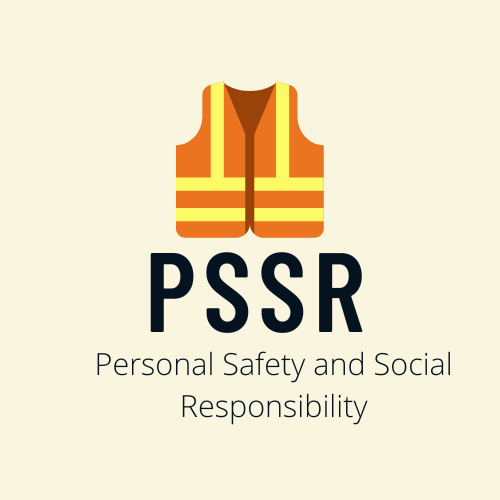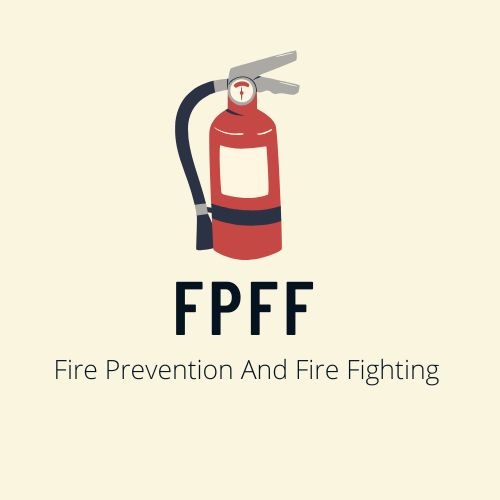FPFF exit exam questions and answer quiz contain questions Answer
If you find any questions incorrect, please let us know by Clicking here.
1. What is the maintenance schedule
for a sprinkler system onboard
a) Monthly
b) Quarterly
c) Weekly & yearly
d) Half yearly
2. What action should be taken
immediately after a fire has been extinguished
a) They are liable to spontaneous combustion
b) They are not a hazard
c) They are not hazard unless
ignited
d) They generate their own oxygen when ignited and are therefore difficult to extinguish
3. Which ship shall be provided with international shore connection for supply of water as extinguishing media
a) Tankers
b) All ships of 500 GRT and upward
c) Passenger ships carrying more than 36 passengers
d) Passenger ships of 100 GRT and upward
4. Fire detector principle of operations could be
based on
a) Bimetallic strip
b) Fusible links
c) Quartzite bulb
d) All the above
5. You should always check closed
doors for heat before opening them
a) True
b) False
6. Fire of carbonaceous substances is known as
a) Class B Fire
b) Class A fire
c) Class C fire
d) Class D fire
7. Fire blankets are
used for
a) Smothering of fire
b) Cooling of fire
c) Inhibition of fire
d) Starvation of fire
8. Designated exits must always be
unlocked from both side
a) True
b) False
9. The lowest temperature at which
the heat from the combustion of a burning vapor is capable of producing
sufficient vapor to sustain the reaction and to enable combustion to continue
is called
a) Flashpoint
b) Self-ignition temperature
c) Fire point
d) None of the above
10. What fixed firefighting medium do
we normally use in the engine room, pump room and other spaces?
a) 68 - 79
c) 48 – 55
b) 56 - 67
d) 80 – 90
11. Structural fire protection refers to the
passive measures taken to
a) Provide a vessel with a sprinkler system
b) Provide a vessel with firefighting equipment
c) Limit the risk and spread of fire
d) Limit the size of the engine room
12. What quantity of reserve fuel is to be
available for diesel-driven fire pumps outside the main machinery space
a) 20 liters
b) 40 liters
c) sufficient amount for six hours operation at full capacity
d) Sufficient amount for fifteen
hours operation at full capacity
13. Whilst in the
Engine room you hear the CO2 release alarm, what action if any should you take.
- As CO2 cannot kill you, secure present work and
proceed out of engine room.
- Proceed to the engine control room and call the
bridge for further instructions.
- Take no action
as it is probably someone testing the system, as the fire alarm has not been
sounded and the engine room is not on fire.
- Leave the engine room as quickly as possible,
closing all doors behind you.
14. A pan on the galley stove containing oil catches fire, which of the
following should NOT be used on this type of fire?
-Cover pans with lid and switch off heat
source.
-Raise the alarm, close the galley door and
wait for the fire teams to arrive.
-Use a water extinguisher to put out the fire.
-Cover pan with fire blanket and switch
of heat source.
15. What are class 'C' bulkheads?
-Bulkheads constructed of approved
non-combustible materials that can withstand the standard fire test for 30
minutes.
-Bulkheads constructed of approved
non-combustible materials that can withstand the standard fire test for 45
minutes.
-Bulkheads constructed of approved
non-combustible materials that can withstand the standard fire test for 15
minutes.
-Bulkheads constructed of approved
non-combustible materials but do not meet any of the requirements relative to
smoke and flame nor limitations relative to temperature rise.
16. You
are carrying out a search in a smoke-filled room wearing BA. How would you conduct this search?
- As soon as you enter carry out a right- or left-hand search by
placing the appropriate hand onto the bulkhead and then follow the bulkhead
round as quickly as possible.
- Carry out a right- or left-hand search and proceed carefully feeling the area in front with the foot and
using the back of the free hand to check the area in front.
- Proceed straight ahead to the far bulkhead and then carry out a left- or right-hand search as appropriate
- Proceed to the approximate center of the room and then carry out
the search on a circular pattern.
17. Welding and use of open flames on board tankers (without COW
and IGS) in operation are subject to regulations laid down by the Norwegian
Maritime Directorate (Norwegian Ship Control Legislation - NSCL). Which of the
listed requirements regarding washing and gas freeing before hot work in cargo
tanks corresponds to these regulations? (NSCL 22/1294/4)
-All cargo
tanks, pump rooms and cofferdams shall be examined by type approved two explosimeters.
-Gas measuring can be carried out by all deck officers.
-One type approved explosimeter shall be used for gas measuring.
-Hatches to not adjacent tanks which have not been cleaned or
inerted shall be kept open during work.
18. Where
in accommodation spaces shall smoke detectors be located?
-In mess rooms, public lounges and other public rooms
-In
stairways, corridors and escape routes
-Near ventilation ducts throughout the accommodation spaces
-In all crew and passenger cabins
19. If you were put in charge of a fire team what
is the minimum number of men wearing BA sets that you would allow to enter a
smoke-filled compartment?
· 2 men
· 1 man
· 4 men
· 3 men
20. You are carrying out a search in
a smoke-filled compartment wearing BA. At what stage should you start to make
your way out of the compartment?
- Regularly
check your pressure gauge and note how much air you use to reach your work
area. Start to return when you have this amount left plus a reasonable reserve.
-15 minutes after starting to use the set as this leaves you with
five minutes air left.
-Wait until the BA set warning whistle sounds.
-Wait for the appropriate signal on your safety line as the
personnel outside will be keeping a track of the time you have spent inside.
21. What
is the minimum number of portable fire extinguishers that must be carried on
ships of 1000 GRT and above?
9
5 *
3
7
22. In
addition to cargo & machinery spaces which other spaces if any have to be
fitted with an approved fixed firefighting system on cargo ships?
-No additional fixed systems are required.
-Rope store
-Paint
store
-Focsle store
23. Where
can shore side personnel find necessary information on ship's fire control
systems in an emergency situation?
-From the duty officer.
-A copy of the fire control plan is permanently posted in
prominently marked locations onboard ships.
-A copy of
the fire control plans/folders is stored in a watertight and prominently marked container outside the deckhouse or accommodation.
-Information is to be given by the owners through the nearest
rescue center.
24. What
type of construction material should be avoided regarding fire protection
purposes?
-All uncovered wooden materials
-All composite materials
-All plastic materials
-All
combustible materials
25. Which spaces, in regard to fire protection,
shall be separated from the rest of the ship by thermal and structural
boundaries?
-Cargo compartments
-Storage rooms for inflammable materials
-Machinery spaces
-Accommodation
27. Which
ships shall be provided with international shore connection for supply of water
as extinguishing media?
-Passenger ships of 1000 tons gross and upwards
-Tankers
-All ships
of 500 tons gross and upwards
-Passenger ships carrying more than 36 passengers
28. According to SOLAS - for carbon dioxide fire-fighting systems in machinery
spaces the fixed piping system shall be such that
-70 % of the gas can be discharged into space within 2 minutes.
-100 % of the gas can be discharged into space within 3
minutes.
-100 % of the gas can be discharged into space within two
minutes.
-85 % of
the gas can be discharged into space within two minutes.
29. All
waste receptacles shall be of non-combustible materials, built and equipped
with:
- Hinged self-closing cover
- Permanent means for lashing
- No
openings in sides and bottom
- Rack for fire buckets
30. In the case of diesel driven fire pumps, for how
long period shall the fuel tank capacity allow the pump to be run at full
capacity?
One hour
Fifteen hours
Three
hours
Six hours





